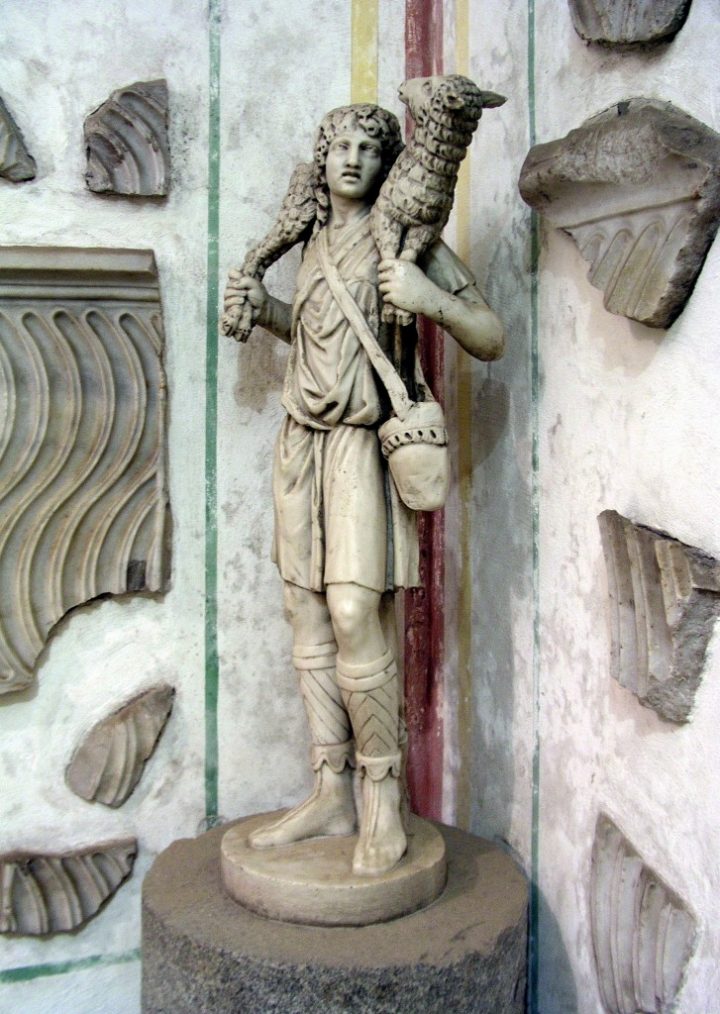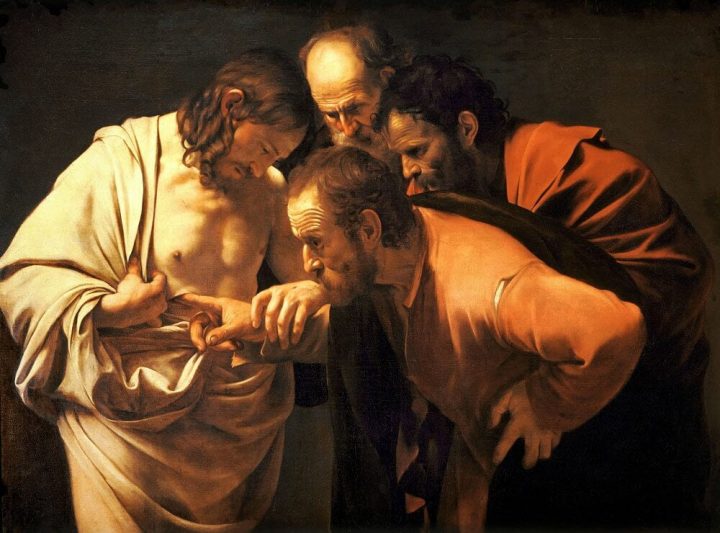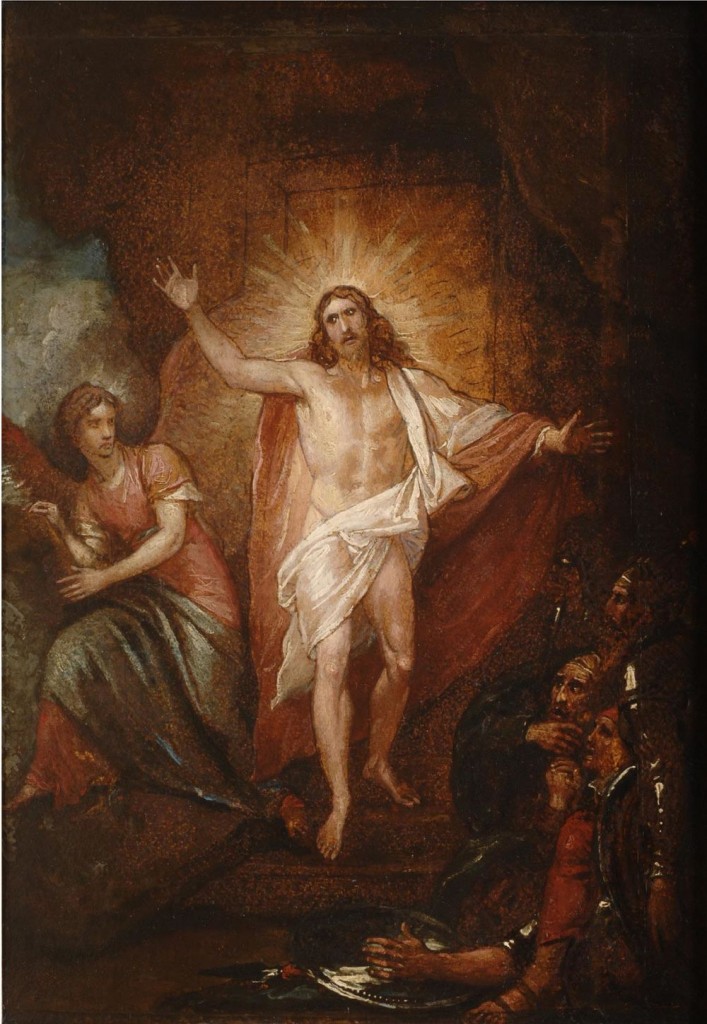The Good Shepherd, c. 300–350, at the Catacombs of Domitilla, Rome (Wikipedia)
Fourth Sunday of Easter
1 Peter 2:20B–25
May 3, 2020
The COVID-19 pandemic has brought the entire world to a standstill. This has caused considerable dislocation in every area of every society and has provided an opportunity to re-evaluate attitudes and world views. With the Internet, spokespeople for every philosophy and religion, new and old, have emerged to take advantage of this situation. Many of these are charlatans and huskers, but some intelligent and reasonable views have been raised. One of these is about the oldest: Stoicism.
We looked at the Stoics by comparing their view of fate with that of the great Jewish sage Ben Sirach. Fate was irresistible and unchangeable and the question for the Stoic is how to approach the inevitable. A Stoics facing the pandemic first ask, “Is what is happening to me under my control?” The Stoic answer is that the existence or non-existence of the disease, who will or will not contract it, and who will or will not die is simply not under our control. In the words of the great Stoic philosopher Epictetus: “I should be indifferent to things beyond my control. They are nothing to me. —Discourses 1.29.24.” Continue reading “Good Shepherd Sunday – Seeking the Hope Within”





